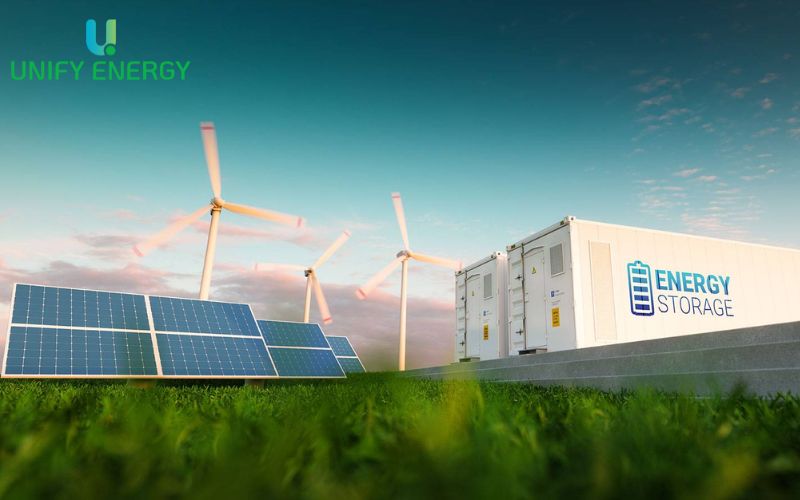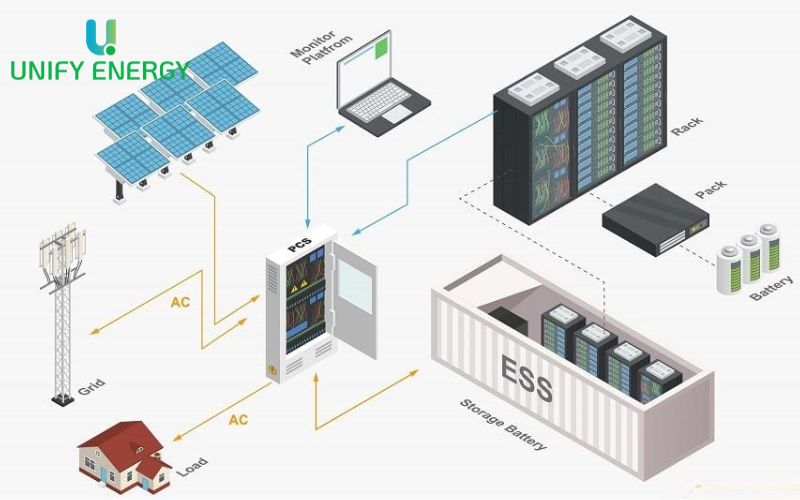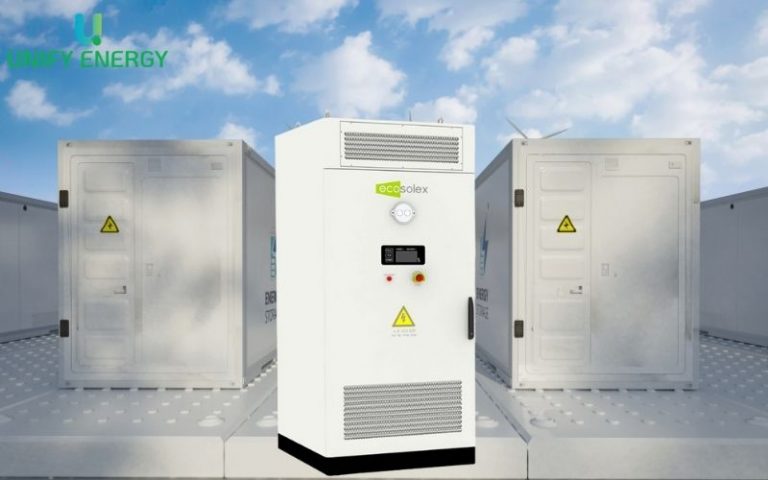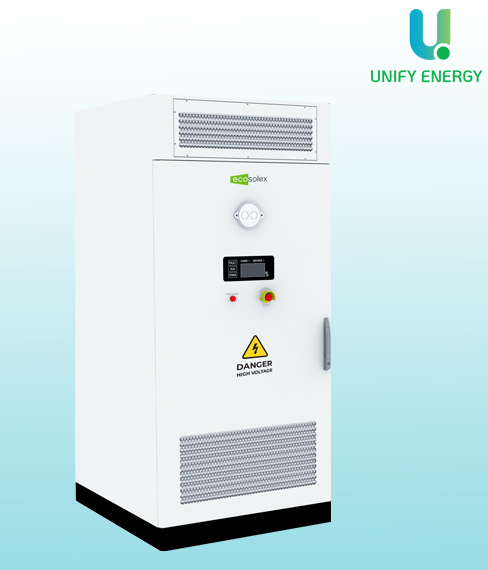In the context of renewable energy being increasingly prioritized, optimizing power sources from solar and wind energy has become an urgent need. Battery Energy Storage Systems (BESS) are advanced solutions to effectively store and manage energy, ensuring stable power supply, maximizing efficiency and increasing flexibility for power systems, from households to industrial enterprises.
This article provides an overview of BESS, how it operates, its benefits, limitations, costs and practical applications.
What is BESS battery energy storage system?
BESS (Battery Energy Storage Systems) is a technology that allows storing electricity from renewable energy sources such as solar energy, wind energy or conventional grid, for use when demand increases or supply is interrupted. Thanks to the ability to store and distribute electricity intelligently, BESS becomes an important solution in improving the stability, efficiency and flexibility of modern power systems.
In practical applications, BESS are deployed from residential scale (Residential BESS), commercial and industrial scale (BESS C&I) to large-scale container systems to serve solar, wind and hybrid projects. This system not only helps reduce pressure on the grid but also improves the efficiency of renewable energy exploitation, reduces operating costs and increases energy autonomy.

Operating principle of BESS energy storage battery system
The operating principle of the battery storage system (BESS) is based on a smart energy storage and release mechanism, combined with advanced management software, to optimize performance and ensure safety:
– Store excess energy:
When the energy from the power source is excessive (such as during the day when the sun is strong or during off-peak hours when the electricity price is cheap), the BESS system stores electricity in the form of direct current (DC) in the battery.
– When electricity demand increases:
When demand increases (at night or when renewable sources decrease), electricity is discharged back to the grid or internal power system via a DC to AC converter, ensuring the voltage and frequency are suitable for the equipment used.
– Control software:
EMS (Energy Management System) software continuously monitors and coordinates the storage, conversion and discharge of electricity, ensuring optimal performance, extending battery life and reducing operational risks.
Thanks to this mechanism, BESS helps reduce the load on the grid, stabilize the power source and improve the efficiency of clean energy exploitation.

Classification of BESS battery energy storage systems
BESS C&I (Commercial & Industrial) battery storage system
BESS C&I is a dedicated battery energy storage system for businesses, factories, commercial buildings and data centers, with the ability to meet large and complex electricity needs. The system not only stores and supplies electricity when needed, but also optimizes energy management, regulates frequency, balances loads and reduces pressure on the grid. Thanks to its flexible operation, BESS C&I helps businesses maintain high performance and reduce the risk of unexpected power outages.
The BESS C&I system also integrates advanced management technology, allowing remote monitoring, analysis of operational data and optimization of energy according to actual needs. These features help businesses save on electricity costs, improve the efficiency of exploiting renewable energy sources and increase the reliability of production and business activities. Thanks to that, the BESS C&I battery storage system becomes a strategic solution for modern industrial and commercial energy projects.

Residential BESS battery storage system
BESS Residential is the ultimate battery storage solution for homes, apartments or smart homes, allowing you to store electricity from rooftop solar or the grid for use when needed. This system helps proactively manage electricity, ensuring continuous backup power, especially during peak hours or when power outages occur.
Thanks to its flexibility and easy integration, BESS Residential is the ideal choice for households looking to optimize their electricity bills and improve the efficiency of their renewable energy use.

In addition to providing a stable power source, BESS Residential is also equipped with an intelligent management system, monitoring battery status and automatically coordinating discharge and charging. This helps the system operate efficiently, reduce energy loss, prolong battery life and ensure user safety. Therefore, the BESS battery storage system is not only a tool to save electricity costs but also plays an important role in building a smart, green and sustainable energy home.
>>See more: BESS civil product lines of quality, safety, and savings for every family
Outstanding BESS battery energy storage system product lines for C&I
BESS Topband 215KWh Energy Storage Battery System
BESS Topband 215 kWh is an advanced battery energy storage system solution, designed to serve small and medium-sized commercial, industrial projects, as well as advanced residential applications. The system perfectly integrates key components such as high-quality LiFePO₄ battery packs, PCS power converters, EMS energy management system, temperature control, fire protection system (PCCC), security devices and many other components.
Thanks to this synchronous structure, the BESS 215 kWh operates efficiently, stably and safely, while minimizing the risk of connection and technical failures, ensuring uninterrupted power supply for industrial and commercial applications.

The flexible modular design allows the system to be easily expanded according to actual energy needs, helping businesses or households optimize the use of electricity from renewable energy sources. The 215 kWh BESS supports both on-grid and off-grid operation, meeting a variety of modes such as PQ, VF, VSG and constant DC voltage. The system has the ability to precisely regulate frequency, withstand 100% unbalanced loads and integrate micro-grid management, helping to optimize renewable energy from the PV system.
All these features make the 215 kWh BESS an ideal choice for BESS C&I projects, while improving energy efficiency and reducing long-term operating costs.
>>Watch video: Introduction to BESS Topband 215KWh energy storage battery system
BESS Topband 261KWh Energy Storage Battery System
BESS Topband 261 KWh is a modern battery storage system solution, developed with a highly integrated, space-optimized design and suitable for commercial, industrial, data center and solar-wind hybrid projects. All the key components, including the battery pack, PCS power converter, BMS battery management system, EMS energy management system, ATS, fire protection system and temperature control, are integrated synchronously in a single block.
With an installation area of only 1.65 m² and a height of 2.07 m, the BESS 261 kWh saves space, reduces construction costs and provides a compact yet efficient energy storage solution.

The system provides high-precision, low-loss, and long-life power conversion, combined with an intelligent liquid cooling strategy to maintain stable operating temperatures, reduce internal power consumption, and extend battery life. The 261 kWh BESS is also equipped with a multi-layer protection system that monitors current, voltage, temperature, and overload or short-circuit failures, combined with international standard fire and explosion protection mechanisms, ensuring absolute safety in all situations.
The cloud-connected EMS management system enables remote monitoring, operational data analysis, smart alerts, and firmware updates, helping businesses deploy BESS C&I easily, improve energy efficiency, and optimize long-term operating costs.
>>See more: BESS Topband 261KWh energy storage battery system
Container BESS Energy Storage Battery System
Container BESS is a large-capacity battery energy storage system solution, designed to meet MW-scale energy projects, including solar power plants, hybrid power stations, data centers and large-scale industrial parks. The system features comprehensive integration, combining high-quality LiFePO₄ batteries, multi-level PCS, intelligent EMS, ATS, MPPT modules and safety protection devices. The modular design makes the container easy to deploy, expand and centrally manage, optimizing installation and operating costs.
The performance of the Container BESS is enhanced by a liquid cooling system that maintains a stable temperature of 30–50°C and limits the difference between battery cells to only about 5°C, helping the battery operate durably and have a lifespan of up to 6,000 charge-discharge cycles. Absolute safety is ensured through a multi-layered fire protection system, explosion-proof, and compliance with strict international standards for operation and safety.

The system is also equipped with a smart remote control solution with a cloud-connected EMS platform, allowing continuous monitoring, data analysis, abnormal warnings and optimizing operating costs. Thanks to that, Container BESS not only provides a stable power source for industrial applications but also ensures efficient, safe and sustainable operation. This is the perfect solution for businesses that want to deploy BESS C&I on a large scale, optimize energy and improve long-term investment efficiency.
>>See more: Introducing the BESS Container battery storage system for C&I
Benefits of using BESS battery energy storage system
It is impossible not to mention the 5 outstanding advantages that the battery storage system brings such as: regenerating energy sources, enhancing and stabilizing, reducing emissions, providing backup power and improving energy efficiency.
Optimizing renewable energy sources
Battery energy storage systems (BESS) play an important role in optimizing the performance of renewable energy sources such as solar power, which fluctuates over time. When the system’s power output exceeds demand, the BESS stores all the excess energy instead of letting it go to waste. This is especially useful during peak sunlight hours, ensuring that the maximum amount of electricity generated is exploited.
In addition to storing electricity, BESS can also discharge electricity at night, when it is cloudy or when the wind is weak – times when electricity demand usually increases. As a result, the system supports the transition to clean energy in a more stable, sustainable and efficient way. This is an important strategy to help businesses and households achieve their carbon reduction goals and optimize long-term electricity costs.
Increase stability and reduce pressure on the grid system
One of the outstanding advantages of BESS is its ability to act as a buffer to stabilize frequency, voltage and balance supply and demand of the grid. When the output of renewable energy fluctuates sharply or the load demand suddenly increases, BESS will immediately discharge electricity to maintain grid stability. This helps to minimize the risk of line overload, voltage drop, local power outage or incidents related to operational safety.
Not only that, BESS also helps reduce the load on the grid in areas with high energy density, especially during peak hours. With the ability to charge when there is excess power and discharge when needed, BESS helps improve the reliability of the national power system and reduce pressure on transmission and distribution infrastructure, prolonging equipment life and optimizing investment costs of the electricity industry.
Reduce emissions and save electricity during peak hours
BESS offers significant benefits in reducing the use of electricity from conventional power plants, which emit a lot of CO₂. By storing electricity during low demand periods and using it during peak demand periods, users can reduce the amount of electricity they buy from the grid – a significant cost saving. This is a strategy many businesses use to optimize their electricity bills using time-of-use pricing.
In addition to cost savings, this BESS operating mechanism reduces dependence on oil or gas-fired power plants, which are typically activated when demand is high. As a result, BESS contributes to reducing greenhouse gas emissions, supporting the goal of sustainable energy development and improving the operational efficiency of the entire national power system.
Backup power source
In the event of a grid power failure, the BESS battery energy storage system can immediately switch to backup power supply mode, ensuring that critical equipment is not interrupted. This is the optimal choice for environments requiring high continuity such as manufacturing enterprises, data centers, hospitals, offices or households using sensitive electrical equipment.
BESS’s ability to respond in milliseconds ensures zero downtime. This helps protect equipment, maintain production and avoid economic losses due to unplanned power outages. With its safety, noise-free nature and no need for fuel like diesel generators, BESS becomes a modern and environmentally friendly backup power solution.
Improve energy efficiency
Not only does it store and supply electricity, BESS also comes with smart energy management platforms, allowing users to monitor, optimize and automate electricity usage. The system can be programmed to charge and discharge electricity at appropriate times, helping to reduce operating costs and increase energy efficiency throughout the system.
For businesses, BESS also supports strategic operations such as load balancing, improving power factor and reducing penalties from electricity suppliers. For households, the system helps optimize electricity from rooftop PV, increasing energy autonomy and reducing dependence on the national grid. As a result, BESS becomes a comprehensive solution for the goal of saving, stabilizing and optimizing energy in the long term.

Economics of BESS C&I Energy Storage Battery System
Investing in Battery Energy Storage System (BESS) in the commercial and industrial (C&I) sector is becoming a strong trend in the context of continuously increasing electricity costs and increasing demand for energy stability. However, the economic problem related to BESS deployment is still an issue that many businesses consider carefully.
The initial investment cost for a BESS system is not small: for households, the investment level can range from several tens to several hundreds of millions of VND depending on capacity and technology; and for businesses or factories, the cost can be up to billions of VND due to the requirements of large capacity, smart management system and high safety standards.
Despite the high initial investment cost, BESS offers many long-term economic benefits. The system allows storing electricity during off-peak hours – when electricity prices are cheap, then releasing it during peak hours – when electricity prices increase sharply, helping businesses significantly reduce monthly operating costs. For businesses with high electricity consumption or large load fluctuations during the day, BESS’s energy dispatching capabilities help limit peak loads, avoiding penalty costs due to exceeding the allowed capacity.
In addition, BESS also helps businesses make the most of electricity from renewable energy systems such as solar power. Instead of letting excess electricity be cut or not fully exploited, BESS stores all the excess and redistributes it at the right time, thereby increasing the self-consumption rate and shortening the payback period of the renewable energy system.
Financially, the “break-even” period for a BESS investment is typically between 5–10 years, depending on the system size, electricity consumption, regional electricity prices, and the performance of the renewable energy source. For businesses with high peak electricity consumption, the payback period can be shorter thanks to the strong ability to optimize operating costs.
In the long term, as electricity prices continue to rise and load management policies become increasingly stringent, BESS not only brings economic benefits but also helps businesses improve their initiative and stability in energy operations.
Overall, despite the significant initial investment required, BESS is still a sustainable economic solution for the commercial and industrial sectors. This is a long-term investment that helps businesses save on electricity costs, stabilize production activities and increase competitiveness in the context of an increasingly strong transition to clean energy.

Unify Energy – Distributor of Topband’s BESS energy storage battery system products in Vietnam
Topband is one of the world’s leading corporations in the field of LFP battery production and BESS energy storage systems. With more than 11,600 employees, 14 R&D centers, and annual revenue exceeding 1.5 billion USD, Topband possesses outstanding production capacity and a comprehensive product ecosystem, fully meeting the needs of the civil, commercial and industrial markets.
During more than 20 years of operation in the energy – automation industry, Topband has built a sustainable competitive advantage thanks to its ability to master the entire value chain: from material research, LFP cell technology development, module-pack design to the production of complete BESS and BESS C&I systems, meeting international safety standards.
In Vietnam, Unify Energy is proud to be the official distributor of Topband’s BESS battery storage system products. With a pioneering orientation in energy conversion and power management optimization, Unify Energy offers a diverse product portfolio including residential BESS, C&I BESS serving many practical applications such as rooftop solar power, manufacturing plants, logistics centers, electric vehicle charging stations, industrial parks, commercial buildings and load reduction projects – optimizing peak hours.

Not only providing international quality equipment, Unify Energy also provides a complete chain of value-added services: technical consulting – system design – providing optimal solutions – installation – commissioning – monitoring – long-term maintenance. Each project is implemented by a team of experienced engineers with in-depth knowledge of BESS energy storage battery systems as well as safety standards in the energy industry. This helps customers operate with peace of mind, increase system life and maximize investment efficiency throughout the system’s life cycle.
>>See more: Unify Energy is the official distributor of Topband’s BESS battery storage system in Vietnam
Conclude
The application of BESS battery energy storage systems in civil, commercial and industrial applications is becoming an inevitable trend in the energy transition process in Vietnam. With the combination of Topband’s advanced technology and Unify Energy’s professional implementation capacity, customers can confidently invest in an optimal, safe and long-term economic solution. Unify Energy is ready to accompany you on the journey to build a more stable, sustainable and economical energy system.
Showing all 5 results


